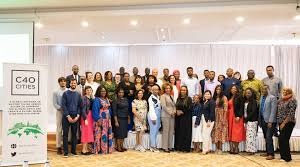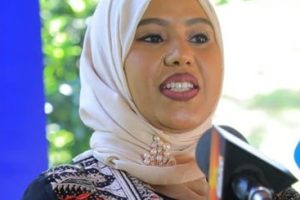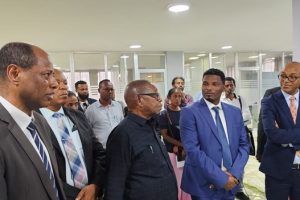
While social media has been vital foruniting the public for common causes and enabling genuine reflections on government activities, it has also sparked conflict and unrest by spreading fake news and hate speech. Communication experts are now calling for measures to reduce the negative impact of social media misuse.
The Ethiopian government has encouraged users and online influencers to promote ethical conduct and avoid inciting conflicts among different groups. Speaking to the Ethiopian Press Agency (EPA), Injibara University Journalism and Communication Lecturer Melkamu Mekonnen (PhD) emphasized the importance of educating the public on responsible social media use to mitigate harm. He noted that short-term training initiatives are a good start, but sustained efforts are needed.
“Youth should use social media to foster personal and national growth, minimizing its risks,” Melkamu said, warning that misuse is eroding cultural values and unity. He urged mainstream media to focus on constructive content instead of amplifying divisive agendas from social media.
“While social media provides a platform for free expression, this freedom should not come at the expense of national and societal interests,” he underscored. “Irresponsible use affects not just individual users but also causes broader societal harm, so mindful use is essential.”
Despite the misuse, platforms like Facebook have positively influenced Ethiopia’s political landscape by facilitating interactions among different social groups and influencing policy decisions. Bloggers and social media influencers have used these platforms productively, promoting ideas that have shaped policymaker decisions positively.
The expert also called for social media users to focus on content that improves living standards, health, and the economy. He stressed the importance of accountability for those who violate regulations on hate speech and disinformation and urged responsible use of the platform. Public media and other organizations must also work harder to debunk false information spread on social media to minimize its impact on society.
Similarly, Jimma University Media and Communication Lecturer Getachew Tilahun (PhD) noted that social media allows users to share information and express their thoughts freely, regardless of location. He urged activists to use social media to address critical issues, such as national, economic, social, cultural, and political matters that promote unity and peace. The expertadvocates for more education on using these platforms responsibly to prevent misinformation and conflict.
While social media has enabled the government to gauge public interests and foster public discourse, it has been misused by some for personal gain,often fueling division and tension.Communication experts stress the need for accountability and greater public awareness to mitigate these issues.
Those experts also caution that social media posts designed to provoke emotional reactions or controversy often gain significant public engagement, with some opinion leaders and bloggers using this strategy to build personal followings or push biased viewpoints. These actions have contributed to a politically charged atmosphere in Ethiopia, with misinformation and biased reporting on ethnic, religious, and political issues further inflaming tensions.
BY BETELHEM BEDLU
THE ETHIOPIAN HERALD THURSDAY 5 SEPTEMBER 2024





